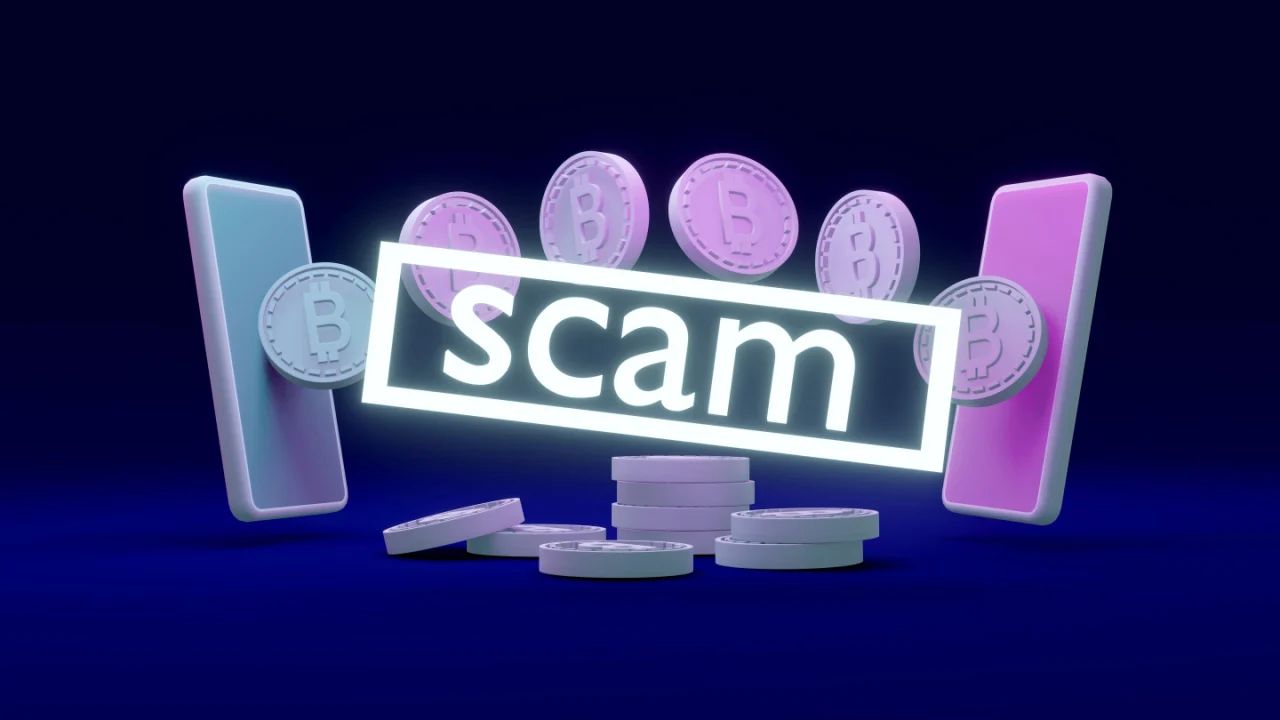Tips for Outsmarting Crypto Scams

In an era where virtual transactions are commonplace, the likelihood of encountering malevolent schemes designed to exploit individuals has significantly increased. As technological advancements continue to reshape the financial landscape, it’s crucial to remain vigilant against these threats. Understanding the tactics employed by fraudsters is the first step towards building a resilient defense.
With the proliferation of innovative digital assets, the complexity of such deceptions has escalated, making it imperative for users to equip themselves with knowledge and awareness. Knowledge is power, and by familiarizing oneself with the common characteristics of these fraudulent activities, individuals can enhance their ability to recognize potential dangers.
Moreover, fostering a culture of skepticism and caution is essential in navigating this intricate environment. By implementing proactive measures and staying informed about the latest trends in cybersecurity, anyone can bolster their defenses against deceptive practices. Embracing these strategies not only protects one’s own interests but also contributes to a safer digital community for all participants.
Recognizing Common Crypto Fraud Tactics
In the ever-evolving landscape of digital currency, various deceptive methods have emerged, targeting unsuspecting individuals. Raising awareness about these fraudulent practices is essential for individuals to protect themselves. Being informed about these tactics can significantly reduce the risk of falling victim to malicious schemes.

Phishing Emails and Websites
One prevalent method involves impersonation through deceptive emails and websites. Scammers often create convincing replicas of legitimate platforms, prompting users to enter sensitive information. These communications may appear official, featuring logos and language similar to that of reputable entities. Vigilance in scrutinizing URLs and checking for official communications can help identify these threats.
Pyramid Schemes and Unrealistic Promises
Another tactic involves the allure of seemingly guaranteed high returns through multi-level marketing or pyramid structures. Promoters often use persuasive language to entice participants, claiming extraordinary profits with minimal effort. Critical evaluation of investment opportunities and recognizing the signs of sustainability can safeguard individuals from falling into these traps.
Best Practices for Secure Online Transactions
Engaging in digital transactions requires thoughtful precautions to ensure the protection of personal and financial information. By adopting effective strategies, individuals can minimize risks associated with the virtual marketplace. Below are essential guidelines aimed at fostering a secure environment for transactions.
Key Strategies for Safe Transactions
- Utilize strong, unique passwords for each account.
- Enable two-factor authentication wherever possible.
- Regularly monitor bank statements and transaction histories.
- Be wary of unsolicited communications requesting personal information.
- Use reputable platforms and applications for purchases.
Recognizing Secure Platforms
Identifying trustworthy sites is crucial for a positive experience. Here are indicators to consider:
- Look for HTTPS in the URL, signifying a secure connection.
- Check for reviews and ratings from other users about the platform.
- Ensure that contact information is readily available and legitimate.
- Be cautious of deals that seem too good to be true.
By implementing these practices, individuals can significantly enhance their transaction security and safeguard their sensitive data from potential threats.

How to Verify Cryptocurrency Platforms
Ensuring the legitimacy of digital currency exchanges is crucial before engaging in transactions or investments. A simple verification process can help differentiate trustworthy platforms from potential pitfalls. By reviewing specific criteria and following established practices, individuals can make informed decisions and protect their financial assets.
Start by examining the following aspects to ascertain the credibility of any trading platform:
| Criteria | Description |
|---|---|
| Regulatory Compliance | Check if the platform is registered with appropriate regulatory authorities and adheres to local laws. |
| User Reviews | Research user feedback on independent review sites to gauge the experiences of other clients. |
| Security Measures | Evaluate the security protocols implemented, such as two-factor authentication and encryption methods. |
| Customer Support | Assess the availability and responsiveness of support services, which play a vital role in resolving issues. |
| Trading Fees | Look at the fee structure to understand the costs associated with transactions and withdrawals. |
| Withdrawal Policies | Review the platform’s terms regarding withdrawals, ensuring they are fair and transparent. |
By systematically analyzing these factors, one can make educated choices when selecting platforms for trading or investment purposes, ultimately enhancing their overall experience in the digital currency arena.
Safety Tips for Crypto Wallets
Ensuring the protection of your digital holdings is paramount in today’s technological landscape. Whether you are an experienced enthusiast or a newcomer, adhering to certain guidelines can significantly enhance the security of your storage solutions. This section outlines essential strategies to safeguard your valuable assets from potential threats.
Choose Robust Passwords
Utilizing strong passwords is vital in preventing unauthorized access. Aim for a combination of uppercase and lowercase letters, numbers, and special characters. Regularly changing your passwords and avoiding easily guessable information can further reinforce security. Additionally, consider using a password manager to keep track of your credentials safely.
Utilize Two-Factor Authentication
Implementing two-step verification adds an extra layer of protection. This technique requires a second form of identification, like a text message or an authentication app, when logging into your account. This feature significantly reduces the risk of intrusions, providing peace of mind while managing your digital funds.
Understanding Scammer Psychology
The art of manipulation plays a significant role in the tactics of deceitful individuals. They often exploit human emotions such as fear, greed, or urgency, creating scenarios that compel victims to act without careful consideration. By dissecting the mindset of these perpetrators, one can better recognize their methods and foster resilience against their deceptive practices.
Common Tactics Employed by Fraudsters
Fraudsters frequently utilize a variety of strategies to lure individuals into their traps. They may present themselves as authority figures or utilize fake testimonials to build trust quickly. The urgency they create can provoke hasty decisions, leading potential victims to overlook red flags. Understanding these techniques can equip individuals with the knowledge to question motives and assess situations more critically.
The Role of Emotional Manipulation
Emotional triggers are paramount in the toolset of tricksters. By tapping into feelings of excitement or fear of missing out, they craft messages that resonate deeply with their targets. This emotional engagement leads to increased susceptibility to believing false narratives or offers that seem too good to be true. Acknowledging these emotional influences can aid in maintaining a rational perspective when evaluating unfamiliar propositions.
Resources for Reporting and Recovery
This section aims to provide essential information and guidance for individuals who find themselves in distressing situations involving digital investments. Whether you’ve encountered illicit activities or have been misled into losing your funds, knowing where to seek help and how to recover lost resources is crucial.
There are a variety of organizations and platforms dedicated to assisting victims of financial fraud. These institutions not only facilitate reporting incidents but also offer valuable advice on steps to take following an unfortunate event. Among them are governmental agencies, consumer protection organizations, and specialized hotlines that cater to specific issues related to digital currencies.
For those looking to regain lost assets, engaging with recovery firms and legal professionals experienced in this field can be beneficial. They often possess the expertise needed to navigate complex cases and can provide tailored strategies to reclaim what’s been taken. Additionally, fostering communication with your financial institution can lend support in disputing unauthorized transactions.
Educational resources are also available to empower users with the knowledge needed to recognize potential threats in the future. Webinars, informative articles, and community forums serve as excellent tools for learning about preventive measures and staying informed about the latest trends in online threats.

In conclusion, a proactive approach to seeking assistance and learning from experiences can significantly enhance your ability to manage adverse situations in the digital financial landscape.
Q&A: Defeating crypto scams
What are the most common types of crypto scams that I should be aware of?
Some of the most common types of crypto scams include Ponzi schemes, phishing attacks, fake initial coin offerings (ICOs), and impersonation scams on social media. Ponzi schemes promise high returns with little risk, while phishing attacks trick users into revealing their private keys or login information through fraudulent websites or emails. Fake ICOs lure investors with fake whitepapers and websites, while impersonation scams involve scammers pretending to be reputable figures or organizations to gain trust and solicit funds.
How can I identify a potential crypto scam before I fall victim to it?
To identify a potential crypto scam, look for red flags such as promises of guaranteed returns, high-pressure sales tactics, and poorly designed websites. Always research the project and its team, checking for transparency and reputable community feedback. Monitoring social media platforms for reviews and discussions can also provide insight. Additionally, be cautious of unsolicited offers and always verify the authenticity of communications before proceeding with any transactions.
What precautions should I take when investing in cryptocurrencies to stay safe online?
When investing in cryptocurrencies, it’s essential to take several precautions: use reputable exchanges, enable two-factor authentication (2FA), and store your crypto in secure wallets (hardware wallets are recommended). Avoid sharing sensitive information online and be cautious with public Wi-Fi networks. Regularly update your software and devices to protect against malware, and consider implementing safe browsing tools or VPNs to enhance privacy. Educating yourself about the market trends and potential risks is also vital.
Is it safe to share my cryptocurrency investment experiences on social media?
While sharing your cryptocurrency investment experiences on social media can be a way to connect with others and gain insights, it’s important to exercise caution. Avoid disclosing sensitive personal information, such as your wallet addresses or private keys. Be mindful of the audience you’re sharing with and be aware that scammers often lurk in online communities. If you want to share your experiences, consider doing so in private groups or forums where members are more likely to be genuine and interested in constructive discussions.
What should I do if I realize I’ve fallen for a crypto scam?
If you realize you’ve fallen for a crypto scam, act quickly: first, cease any further transactions with the scammer. If you provided personal information, consider changing your passwords and enabling identity theft protection services. Report the scam to relevant authorities, such as your local law enforcement and platforms like the Federal Trade Commission (FTC) in the U.S. Additionally, try to gather as much evidence as possible, including transaction IDs, screenshots, and communication logs, which could assist in any investigations.
What are some common signs that a cryptocurrency investment opportunity might be a scam?
There are several red flags that can indicate a cryptocurrency investment may be a scam. Firstly, if the opportunity promises unrealistic returns, such as doubling your money in a very short period, it’s likely too good to be true. Additionally, scams often lack verifiable information or detailed explanations regarding their operations or the technology behind the investment. Be wary of aggressive marketing strategies or urgent pressure to invest, claiming that the opportunity will close soon. Lastly, if you cannot find credible reviews or testimonials about the project or individuals involved, it could be a sign of a scam. Always conduct thorough research and due diligence before committing any funds to ensure your safety online.
What are pig butchering scams, and how do they operate in the world of cryptocurrency?
Pig butchering scams are a type of cryptocurrency fraud where scammers build trust with victims over time before convincing them to invest in cryptocurrency through a fake website or fraudulent crypto investment. The scammer may even create a sense of urgency to pressure the victim into sending a small amount of cryptocurrency before escalating the fraud. These scams are also known as romance scams, as they often involve emotional manipulation.
How can investors protect themselves from cryptocurrency fraud and avoid falling victim to scams?
To protect yourself from cryptocurrency scams, it is important to verify the legitimacy of any crypto exchange or investment scheme before sending funds. Warning signs include unrealistic promises of high returns, unsolicited investment offers, and phishing scams that attempt to steal cryptocurrency wallet credentials. Awareness and independent journalism in the crypto space play a crucial role in helping users avoid this altogether.
How has cryptocurrency fraud evolved in 2022, 2023, and 2024?
Cryptocurrency fraud cases have increased in complexity, with scams involving cryptocurrency becoming more sophisticated. In 2022 and 2023, pig butchering scams and phishing scams targeted investors through social media and fake websites. By 2024, law enforcement agencies and local crypto firms have taken stronger measures against scams to prevent lost funds. However, the nature of crypto continues to pose challenges in tracking and preventing fraud.
Why do some argue that scams are “not crypto’s fault,” and what can be done to beat crypto scams?
Many experts believe that scams are “not crypto’s fault” but rather a result of bad actors exploiting the crypto space. The decentralized nature of blockchain technology allows for secure transactions, but it also attracts scammers who take advantage of unsuspecting investors. Educating users, improving regulation, and strengthening security measures on cryptocurrency exchanges in Australia and globally are key steps to beat crypto scams.
What role do law enforcement agencies and independent journalism in the crypto space play in fighting cryptocurrency fraud?
Law enforcement agencies investigate and prosecute scams involving cryptocurrency, while independent journalism in the crypto space helps raise awareness about potential scams. Reports could help prevent others from falling victim by exposing fraudulent schemes and providing guidance on how to avoid falling victim to the same scam. Collaboration between governments, major Australian crypto firms, and crypto firms such as Cointree can improve measures against scams and protect investors.

